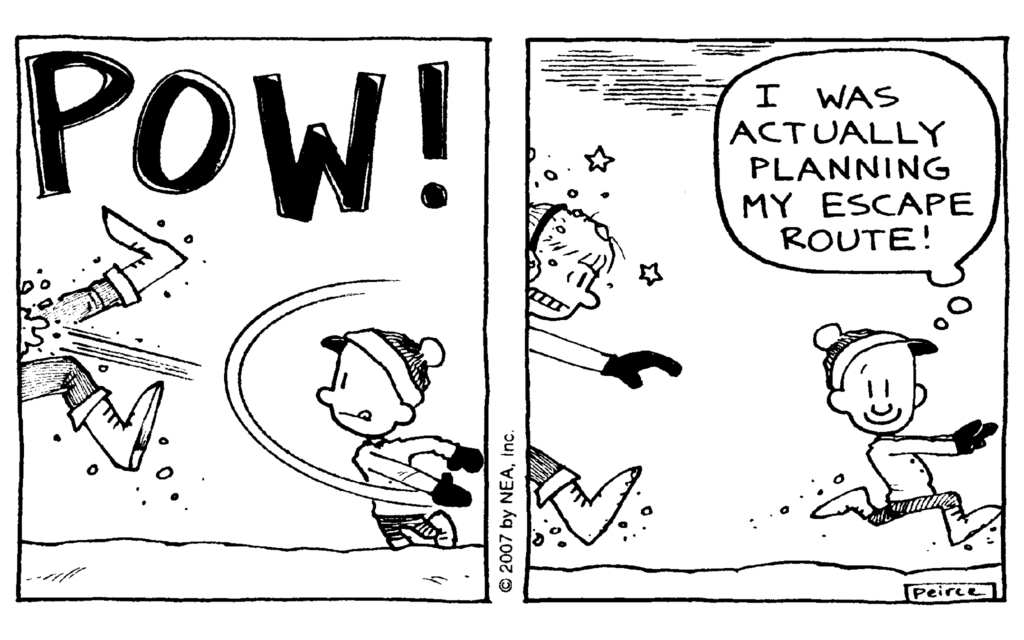Big Nate by Lincoln Peirce for August 06, 1995
Transcript:
Francis: Ah, backyard camping! Nate: Give me some more bug juice. Francis: Ready to toast some marshmallows? Nate: Yup! The fire is PERFECT for toasting! Francis: I've got the ultimate toasting stick! Not too short, not too... Nate: SSSSH! Did you hear something? Francis: Something like what? Nate: Quiet! Francis: Was it some sort of wild animal? Nate: Worse. Francis: WORSE?! Nate: It's... It's...The sound of music. Dad: I THOUGHT I smelled a campfire!

















The Sound of Music is a 1965 American musical drama film produced and directed by Robert Wise, and starring Julie Andrews and Christopher Plummer, with Richard Haydn, Peggy Wood, Charmian Carr, and Eleanor Parker. The film is an adaptation of the 1959 stage musical of the same name, composed by Richard Rodgers with lyrics by Oscar Hammerstein II. The film’s screenplay was written by Ernest Lehman, adapted from the stage musical’s book by Lindsay and Crouse. Based on the 1949 memoir The Story of the Trapp Family Singers by Maria von Trapp, the film is about a young Austrian postulant in Salzburg, Austria, in 1938 who is sent to the villa of a retired naval officer and widower to be governess to his seven children.4 After bringing love and music into the lives of the family, she marries the officer and, together with the children, finds a way to survive the loss of their homeland to the Nazis.
Filming took place from March to September 1964 in Los Angeles and Salzburg. The Sound of Music was released on March 2, 1965, in the United States, initially as a limited roadshow theatrical release. Although initial critical response to the film was mixed, it was a major commercial success, becoming the number one box office film after four weeks, and the highest-grossing film of 1965. By November 1966, The Sound of Music had become the highest-grossing film of all-time—surpassing Gone with the Wind—and held that distinction for five years. The film was just as popular throughout the world, breaking previous box-office records in twenty-nine countries. Following an initial theatrical release that lasted four and a half years, and two successful re-releases, the film sold 283 million admissions worldwide and earned a total worldwide gross of $286 million.
The Sound of Music received five Academy Awards, including Best Picture and Best Director, Wise’s second pair of both awards, the first being from the 1961 film West Side Story.5 The film also received